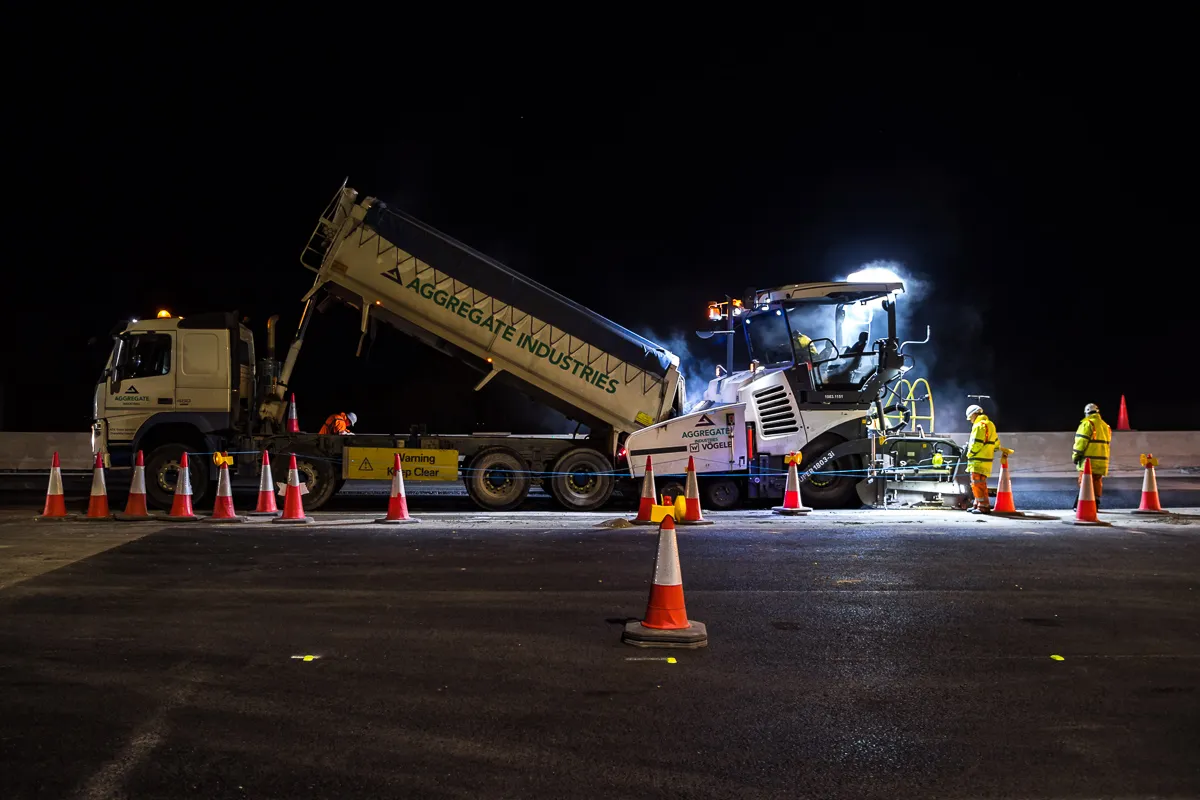
Aggregate Industries has set what it believes to be a record for asphalt paving in the UK. The firm completed its work early on the M23, to the south of London.
According to the company, collaboration was a key to the successful early completion of the project. The firm was able to lay 52,000tonnes of asphalt on the M23 motorway in just one month. This was achieved using a number of evening and weekend closures and successful collaborative arrangements.
Aggregate Industries says that it was able to engage with external stakeholders across the supply chain to ensure the tight deadlines were met. This enabled the firm to break industry records and complete the work ahead of schedule.
The contract included widening the carriageway to achieve the all lane running requirement, full depth reconstruction of the hard shoulder, central reserve works and collaborative completion of junctions 9,10 and lane four surfacing to enable the road to open for traffic.
With Aggregate Industries’ Contracting Division acting as the lead surfacing partner, the materials for the project were supplied by its Asphalt and Aggregates Divisions, and delivered by its Logistics Team.
The company recycled 100% of the waste material from the pre-existing road using a local facility that crushed and screened it for use in the new asphalt. A proportion of the material will also be used, where possible, in the firm’s larger asphalt plants within its materials. As a result of the close proximity of the recycling facility, less haulage was required reducing the project’s carbon emissions.
Faced with a large tonnage of asphalt to lay in a tight deadline, Tarmac was enlisted as the second surfacing partner. This drew on a long standing relationship with Aggregate Industries through the Highways England Category Management Pavement Framework. The collaboration between all parties; similarities in systems of working; and the ability to share resources, drove efficiencies that resulted in laying 52,000tonnes one month. The pavement works were completed six months ahead of the initial forecasted date.
In addition to the logistical, technical and time requirements for the project, the team also adapted quickly to a new working environment due to the Covid-19 pandemic. The team planned stringent working arrangements to make sure that the project was finished in accordance with social distancing guidelines.
Paddy Murphy, managing director of Contracting at Aggregate Industries, said: “Not only is this project a great example of collaboration, flexibility and ingenuity within Aggregate Industries, but it is also further testament that even in uncertain times, businesses like ours, and all the parties we worked in close partnership with, are essential to keeping the country moving.”








